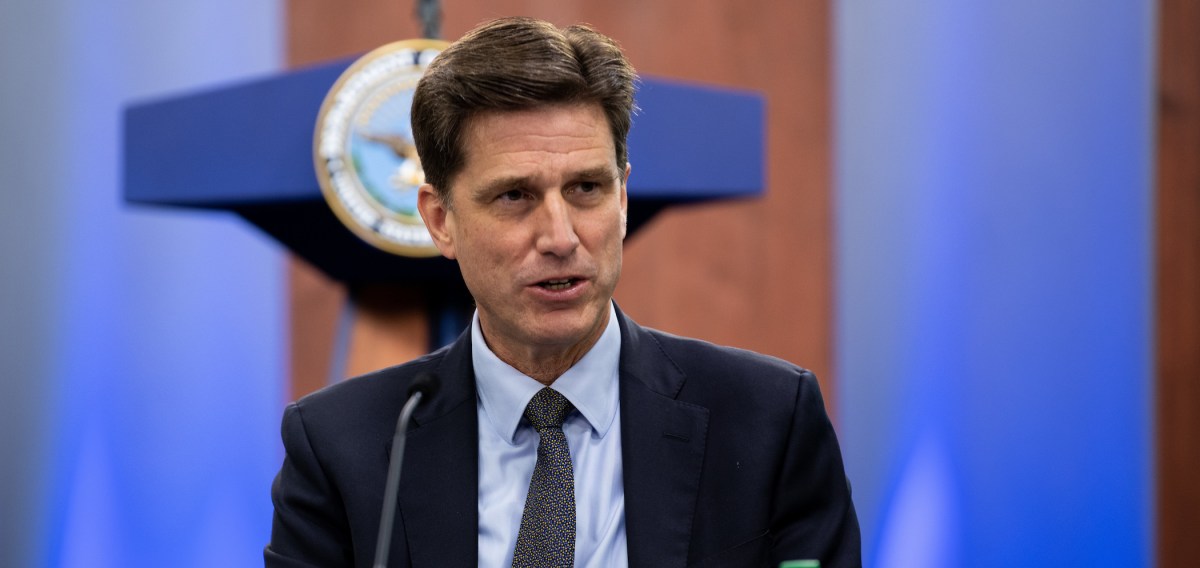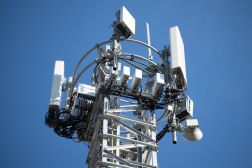DOD’s Deasy, citing risks to GPS, pushes back on Ligado decision

Top Department of Defense officials Wednesday railed against a recent Federal Communications Commission decision that they say will interfere with the military’s Global Positioning System (GPS).
DOD CIO Dana Deasy and other officials told senators that the “risks outweigh the benefits” in giving communications company Ligado the same signal space as the GPS, which is operated by the military. They spoke at a Senate Armed Services Committee hearing about the FCC‘s April 19 decision to allow Ligado to expand its telecommunications systems in what is called the L-Band, the same spectrum GPS uses.
The impact would be on everything from the accuracy of weapons systems to first responders’ 911 navigation ability, said Deasy and the other officials, including the DOD’s chief of space operations, Gen. John Raymond, and the department’s head of research and engineering, Michael Griffin.
Deasy played a central role in Wednesday’s hearing, as he’s led an interagency group of federal officials that examined the technical impacts of Ligado’s proposed build-out on GPS and examined the mitigation plans the company proposed. The technical challenge comes down to “noise,” or signals in the telecommunications spectrum that GPS operates in, Deasy said. GPS satellites send signals that are very quiet, equivalent to the ruffling of leaves, using the sonic metaphor. However, Ligado’s signal would be the equivalent of 100 jets taking off, completely interfering with and drowning out the signals from satellites, officials said.
“Throughout this proceeding, the Department made it clear that approving Ligado’s plans would cause harmful interference to millions of GPS receivers across the country, both civilian and military,” Deasy said in his opening statement.
Deasy stressed that proceeding with Ligado’s development of telecommunications signal towers would force the U.S. to turn to foreign governments for GPS signals. It would put the military in a difficult position, forcing it to rely on other countries for critical national security technology, he and other officials said.
GPS is “the DNA of our way of war,” Gen. Raymond said.
The testifying DOD officials tried to “debunk” the claim that FCC’s decision is in the interest of developing 5G technology. The FCC said its unanimous decision was to “support 5G and Internet of Things services” and would promote a more “efficient and effective” use of the spectrum band.
The officials claimed this characterization was not accurate and said the FCC’s decision would not advance 5G development. The signal towers Ligado would construct and revamp operate in spectrum that is separate from other 5G developments, Deasy said.
In a letter to the Senate Armed Services Committee, Ligado defended its technology as being critical to advancing 5G.
“We now look forward to the opportunity to build a network that will advance our Nation’s progress on the race to 5G,” the company wrote.
But Griffin, also a former administrator of NASA, said Ligado’s system would not reduce latency or make other breakthroughs it claims to make.
“Ligado’s existence, plus or minus, makes absolutely no difference to the U.S. in the so-called 5G race,” Griffin said.
Meanwhile, DOD continues to pursue its own development of 5G technology, using its bases as test space and investing in prototypes from technology companies.



